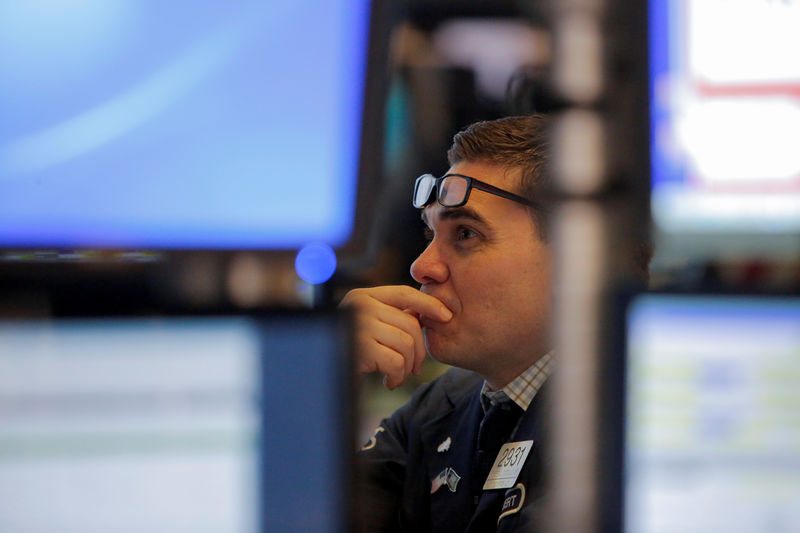Investing.com - The latest escalation in the U.S.-China trade war is likely to dominate investors’ attention this week and a fresh batch of data will give markets more insight into the economic impact of the conflict. Markets will also be watching a gathering of Western leaders at the G7 summit at a time of major divisions over trade, climate change, exchange rates, government spending, Brexit and dealings with China, Iran and Russia.
Here’s what you need to know to start your week.
- Trade tit-for-tat
China said on Saturday it strongly opposes Washington's decision to levy additional tariffs on $550 billion worth of Chinese goods and warned the U.S. of consequences if it does not end its "wrong actions".
The comments came after U.S. President Donald Trump announced an additional 5% duty on $550 billion in Chinese imports in the latest tit-for-tat trade war escalation by the world's two largest economies.
The year-long trade war has roiled financial markets with bond markets indicating the chances of a recession are mounting.
Trump linked his spats with China and the Federal Reserve together on Friday, tweeting that the Fed is not helping with easier rate policy and asking “who is the bigger enemy” — China President Xi Jinping or Fed Chairman Jerome Powell.
- G7 summit
French President Emmanuel Macron is hosting the Aug. 24-26 G7 summit in Biarritz and has put climate change center-stage for the event. But on that and most other subjects, Trump is an outlier. Locked in a trade war with China, he has floated the idea of tariffs on imports from the EU and elsewhere, and his suggestion to re-admit Russia to the G7 has met with opposition from other members.
Macron's new tax on U.S. tech firms has also irked Trump, who has threatened retaliation on French wine exports.
Another issue investors will watch for is whether any mention is made of fiscal stimulus, above all in Germany, something Chancellor Angela Merkel has hesitated over.
- U.S. economic data
The second reading of U.S. gross domestic product on Thursday largely contains tweaks to data already in plain view – consumer spending, business investment and inventories. An initial estimate showed the U.S. economy grew at an annual rate of 2.1% in the second quarter, slowing from 3.1% in the first three months of the year.
Durable goods data is released on Monday and will give insights into U.S. manufacturing activity and capital spending. Thursday’s trade data will show where the deficit with China stood in July. Investors will also be able to parse reports on consumer confidence, pending home sales and the PCE price index, the Fed’s preferred inflation indicator.
- Eurozone inflation
Amid concerns that the German economy could slide into recession in the third quarter, Monday’s Ifo survey of the country’s business climate will be closely watched.
An advance reading of euro zone inflation at the end of the week is expected to underscore the need for more measures to kick-start price growth. Data since the European Central Bank last met has been dismal, and accounts of its July 25 meeting have reinforced that the bank is preparing to unleash support.
A weak inflation reading will likely stir debate about the need to amend the ECB's inflation target, in favor of a more flexible goal that would open the door to even bigger stimulus. The data might also re-ignite calls for Germany to start spending more.
- Retail earnings
Investors will get another look at retail earnings this week when electronics retailer Best Buy and discount retailer Dollar Tree (NASDAQ:DLTR) report quarterly results.
Robust retail sales and strong retail earnings have been a bright spot for the U.S. economy this month, helping to ease fears over the risk of a recession against a background of heightened trade tensions and signs of slowing global growth.
Target’s shares hit record highs last week after its second-quarter earnings beat estimates, but Home Depot (NYSE:HD) warned of slowing sales growth partly due to the potential impact from the upcoming batch of tariffs from the U.S.-China trade war.
--Reuters contributed to this report
